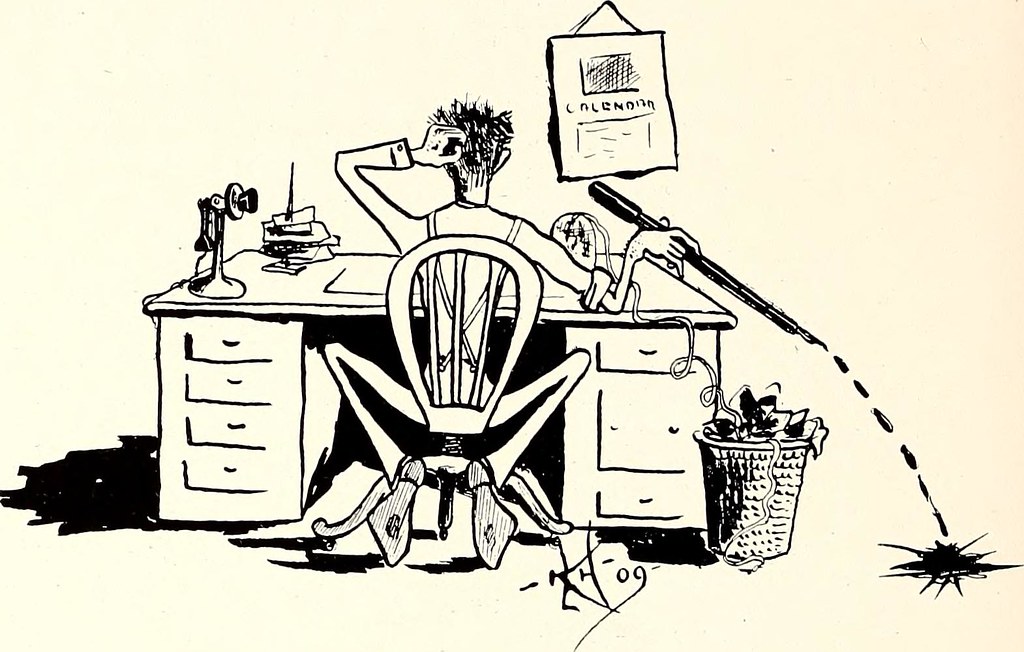We have read about the scandals of getting into college - sometimes, there are serious allegations made when staying in college. This case law applies to private institutions.
Matter of Bondalapati v Columbia Univ. 2019 NY Slip Op 01720 Decided on March 12, 2019 Appellate Division, First Department:
"Respondents' disciplinary determination that petitioner forged an exam booklet was made in accordance with its written disciplinary policy and was rationally based and not arbitrary and capricious (see Kickertz v New York Univ., 110 AD3d 268, 272 [1st Dept 2013]). Petitioner had ample opportunity at the hearing to defend his conduct and explain his actions. Respondents' rejection of petitioner's explanation as not credible was not irrational. The denial of petitioner's internal appeal also was not irrational; respondents' written policy provided for limited grounds for appeal, none of which availed petitioner.
Petitioner's "due process" challenge is misplaced; a student at a private university is not afforded the "full panoply" of due process rights (Cavanagh v Cathedral Preparatory Seminary, 284 AD2d 360, 361 [2d Dept 2001]; Matter of Mu Ch. of Delta Kappa Epsilon v Colgate Univ., 176 AD2d 11, 13 [3d Dept 1992]). Absent State involvement, the only issue for our review is whether respondents substantially complied with their own rules (Mu Ch., 176 AD2d at 13-14; see also Kickertz, 110 AD3d at 272; Cavanagh, 284 AD2d at 361). Petitioner does not dispute that the subject hearing was conducted in accordance with respondents' written disciplinary policy.
Petitioner's arguments about the sufficiency of the record before the hearing committee or on the internal appeal are without merit.
There is nothing shocking or disproportionate about the one-semester suspension imposed (see Matter of Pell v Board of Educ. of Union Free School Dist. No. 1 of Towns of Scarsdale & Mamaroneck, Westchester County, 34 NY2d 222, 233 [1974]; Matter of Quercia v New York Univ., 41 AD3d 295, 297 [1st Dept 2007]).
Petitioner's defamation claim was correctly dismissed because the subject statements were true (see Amato v New York City Dept. of Parks & Recreation, 110 AD3d 439, 440 [1st Dept 2013]), had not been published to any persons outside the university (seeLipsky v Gonzalez, 39 Misc 3d 1202[A], 2013 NY Slip Op 50439[U], *5 [Sup Ct, Bronx County 2013]), and were protected by a qualified common interest privilege (see Present v Avon Prods., 253 AD2d 183, 187 [1st Dept 1999], lv dismissed 93 NY2d 1032 [1999]; Lipsky, 2013 NY Slip Op 50439[U], *5). Petitioner's allegations of malice amount to little more than "mere surmise and conjecture" [*2]and are therefore insufficient to overcome this privilege (see Ashby v ALM Media, LLC, 110 AD3d 459, 459 [1st Dept 2013] [internal quotation marks omitted], lv denied 22 NY3d 860 [2014])."








No comments:
Post a Comment
Note: Only a member of this blog may post a comment.